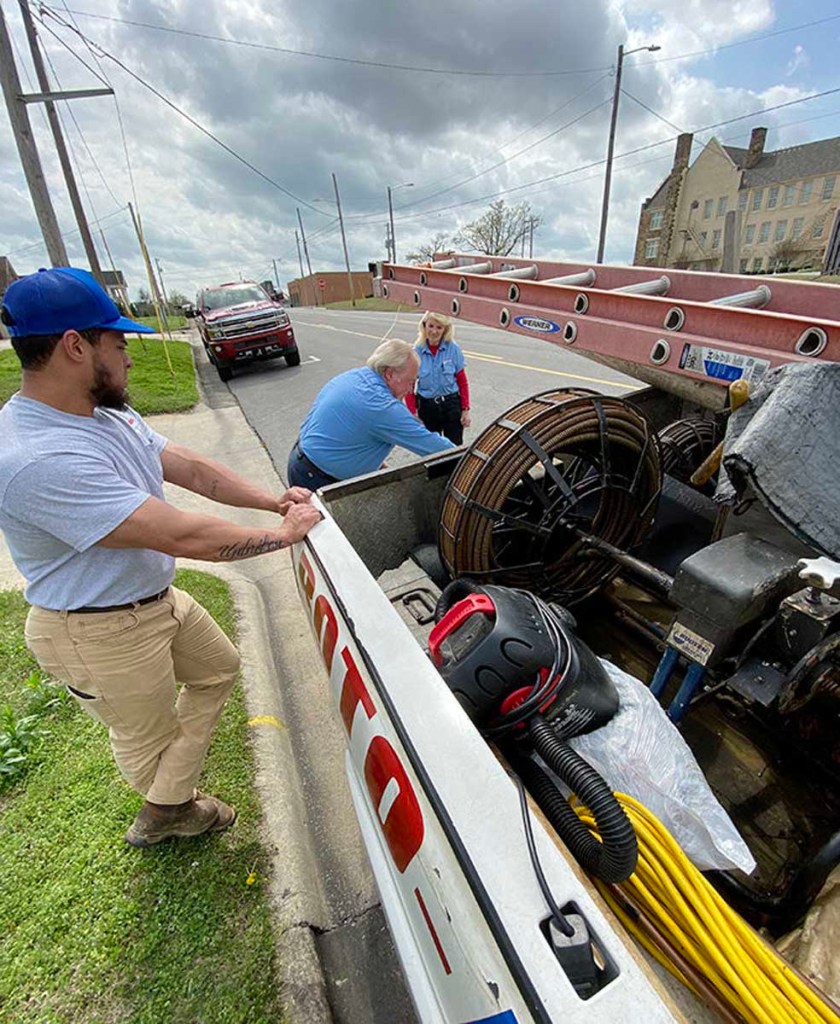No wipes in the pipes
Published 5:15 am Tuesday, March 24, 2020

- Roto-Rooter owners Gary and Rita Patterson, back, and Daniel Ortega, left, are keeping busy keeping pipes clear with the excess rain and COVID-19 run on toilet paper, baby wipes and flushable wipes.
As the COVID-19 situation developed, shoppers cleaned out the stores of toilet paper, baby wipes and disinfecting wipes. But if they are flushing those wipes down the commode, it could come back to haunt them in a very unpleasant way.
“Even though it says on the box they are disposable wipes, it takes longer for them to biodegrade than toilet paper,” said Cullman Wastewater Treatment Plant Manager Jeff Adams.
The waste water treatment plant is seeing some of the effects of people flushing wipes. “We’ve got screens before it comes into the plant and those screens are catching more like fabric and wipes,” he said.
Adams previously worked cleaning septic tanks and knows first-hand the effect wipes can have on those systems. The wipes don’t sink to the bottom of the tank, like biodegradable materials do. Instead, they float on top and can eventually block the pipe leading back into your house. Cue the unpleasant mess.
“It’s a tough time to try and find a plumber to come out and dislodge the pipe,” he said.
Rita Patterson, owner of the local Roto-Rooter, said her business has already been busier this year due to the high volume of rain, and now people flushing things they shouldn’t. “Mostly wet wipes and baby wipes and lot of people are flushing extra plush. It’s stopping up a lot of lines and drains,” she said.
In addition, she said, “These water saver commodes struggle. Since they use less water, it’s harder for paper to dissolve. We just came from a place where the thick paper stopped up the whole house.”
Adams said that while the city system is capable of handling more sewage than an individual septic tank — they are rated to handle 4.75 million gallons of waste water a day — even that system can be impacted by things being flushed that shouldn’t.
“It can clog the pipe coming from your house to the bigger [city] pipe,” he said. And sometimes the larger pipes get clogged as well. “If it clogs up a manhole or something like that, then city workers have to get down and fix that problem.”
His advice on what to flush? “Anything that would be biodegradable would be fine, but we get a lot of plastic products and toys that kids flush down the commode.”
Patterson’s advice was similar: “The best advice I can give would be if you have to use thick paper, use less of it if possible.”
And while she’s getting more residential calls and her business isn’t struggling, Patterson hopes Cullman’s other businesses will be reopening soon. “We miss seeing the people,” she said.
Amanda Shavers contributed to this report.





